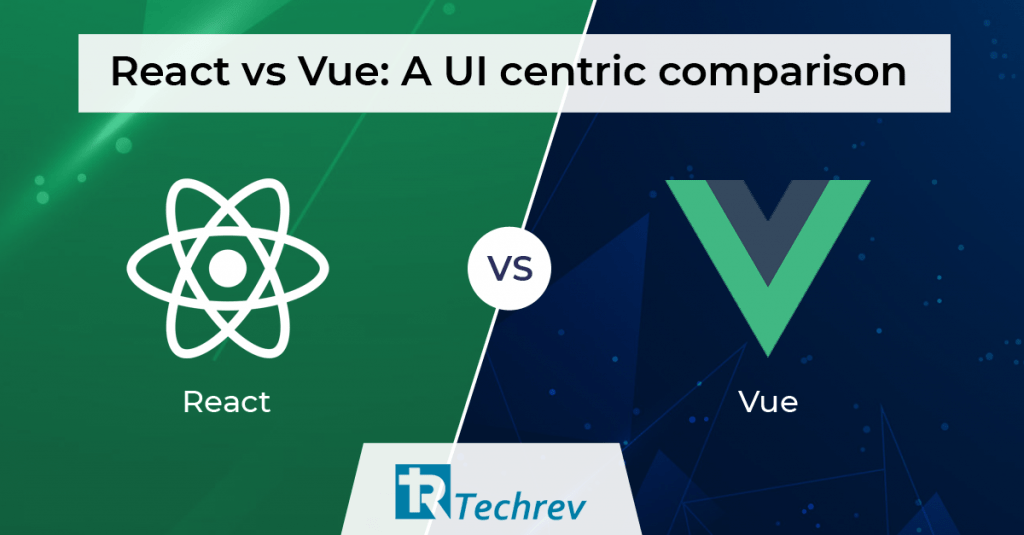
A lot of front-end frameworks and libraries have emerged, creating confusion over choice. In this blog, we’ll be making a fair and comprehensive comparison between React.js and Vue.js, two similar technologies used by developers all across the globe. We have tested both the technologies and come up with the results based on certain criteria.
What is React.js?
In 2013, Facebook developed and released a Javascript library called React.js. Initially developed to create user interfaces, it has since become a staple in mobile, IoT and AR/VR development as well. Owing to its versatility and freedom, it has become one of the most popular Javascript technologies amongst web developers.
What is Vue.js?
Vue.js is the newer framework among the two, developed and released in 2014 by Evan You, a former employee of Google. It is known for being the lightest Javascript framework and has gained immense popularity among developers.
React is a library, while Vue is a framework. However, they still share a significant amount of similarities. They both use a virtual DOM, maintain focus on the core library as concerns related to routing and GSM are handled by companion libraries. That being said, let’s compare the two.
When should you use React?
- High Reliability: The creator of technology is extremely important for both developers and their clients to feel secure. React is backed by Facebook and hence becomes a very reliable option. For an expensive project, developers usually recommend the technology that has been in the market for a longer period of time.
- Freedom to build: React has an advantage over Vue when it comes to flexibility by being a library. There are no limitations to building an app the way you want it with React. With React, you get to build the project your own way.
- Cross-platform mobile app: React provides shorter development life cycles and instant app deployment. It helps develop cross-platform apps that reuse the same code. This helps to save time as two different sets of codes do not need to be written from scratch.
- An ecosystem: React satisfies several project needs. Instead of being used singularly for web apps, it can also be used for single-page apps, Progressive Web Apps, mobile apps, Augmented Reality, Virtual Reality, Internet of Things, etc. It is a complete ecosystem with thousands of third-party libraries and packages available out there.
- Full Javascript functionality: React is best for developers working with Javascript. Everything in React is based on Javascript, from HTML structures to CSS management.
Also read: React Native-Know About The Benefits of Developing Hybrid Application
When should you use Vue.js?
- Light but powerful: Vue is the smallest one when compared to most frameworks. React is quite lightweight on its own, but Vue is still half its size at 23K. Despite its small size, Vue provides amazing performance.
- Templates: Working with Vue becomes a lot easier because it provides templates by default. It also provides the render function that enables developers to use the complete programming features of Javascript.
- Simple & Clean: Vue is the simplest and easiest when it comes to Javascript technologies. The code is usually very clean and easily maintained. The setup is also quite easy and makes it simpler to use existing code.
- Easy Learning Curve: Since Vue is simple and easily understandable, the learning curve is easy. Web developers can easily spot errors in their code because of the simple structure of Vue.
Also read: The Do’s and Don’ts of React Native Performance
React and Vue are both excellent technologies to build web apps. Choosing one based on your project needs can maximize the ease of development and minimize the cost. For more insights on choosing the best technologies for app development, contact our experts at TechRev, a top web app development company.
